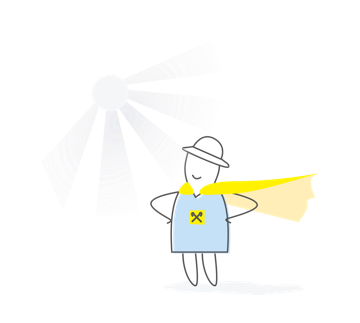New tax and new customs: what to expect
The work of the State Fiscal Service (SFS) will be reorganized - this is how the Cabinet decided. From this department will be created two state services: tax and customs. How will this relate to entrepreneurs?
The tax police will remain in the tax service, and the government will coordinate the work of the new services through the Ministry of Finance. But why the GFS, which was reformed, perhaps, at least 5 times in the last 10 years, another round of changes? The answer is given by the document that Ukraine has signed for the reform. "The heads of both services will be able to delegate their authority in organizations to the extent necessary for the effective functioning of the tax and customs services," the memorandum of cooperation between Ukraine and the IMF says.
The Ministry of Finance promises that the reform of the SFS will create a basis for the demilitarization of tax authorities, that is, it will save the business from the “mask show”, improve the quality of services provided to taxpayers, increase the transparency and accountability of tax and customs authorities. And in general, improve the quality of the system of payment and tax collection. All this should work in favor of the business.
According to the memorandum, the Ministry of Finance of Ukraine should become the controller of the activities of the reformed tax and customs services, having received more oversight functions. The plans include conducting annual independent surveys of taxpayers to assess the level of their perception of corruption in tax and customs. The Ministry of Finance should also conduct an audit of the information systems of the new services. So what will be the reforms?
In the tax area. Course on the development of online services and automation. On the agenda is an assessment of tax breaks and potential revenues, a review of risk criteria, a change in the procedure for selecting payers for audits. In general, the goal of the reform is to make life easier for ordinary taxpayers, for example, to move from mandatory audits to targeted audits to assess the risks of violation of tax laws. Also promise to improve the quality and availability of electronic declaration. Gradually, the Ministry of Finance plans to introduce electronic documentary checks, will begin with the major payers. The approaches to working with tax debt will change. Priorities include the implementation of BEPS rules, international exchange of information.
The main improvement for the business should be the development of electronic services, making changes to ineffective systems, including SMKOR, a system for monitoring the compliance of tax invoices and adjustments based on risk. The system should work so that the payer can easily pay taxes and cannot evade paying them.
At customs. The introduction of the institution authorized economic operator. Ukraine will join the EU / EFTA transit procedure to improve customs control. The Ministry of Finance will introduce a method of measuring the average time of release of goods, will update the control system for determining the customs value. The procedure for providing customs with mandatory tariff information at the request of the enterprise is regulated. The post-entry control and control of the supply chain and the sale of goods in the customs territory of Ukraine will be earned. In addition, customs and tax will have access to databases of other executive authorities: the State Statistics Service, the Ministry of Internal Affairs, the state executive service.
In the tax police. The reform provides for the separation of the service and law enforcement functions of the SFS. The latter will be handed over to a new body that will investigate financial crimes. In fact, this is a clause on tax police reform, but its status will be changed by a separate law, so it’s too early to talk about changes.
COMMENTS
The tax administration will optimize online services and automate operational tasks. Approaches to the selection of taxpayers for verification will be changed. In addition, the planned introduction of electronic checks, it is quite possible that they will begin with large taxpayers. The customs service will introduce the institute of economic operator. Update the system of control of customs value. Post-clearance control over the supply chain of marketable products will function. The duties of the customs service will put control over the rules of transportation of currency values across the border. This all greatly facilitate the work of the business. Qulares lawyer Alexander Vovk
The size of taxes and fees, the number and frequency of inspections by regulatory authorities and the size of fines for violation of tax and customs laws will remain unchanged. This reform is aimed only at dividing the powers of the State Fiscal Service between the STS and the CTA bodies in accordance with their jurisdiction and further facilitating cooperation with these bodies. Managing Partner, Chudovsky and Partners, Igor Chudovsky















